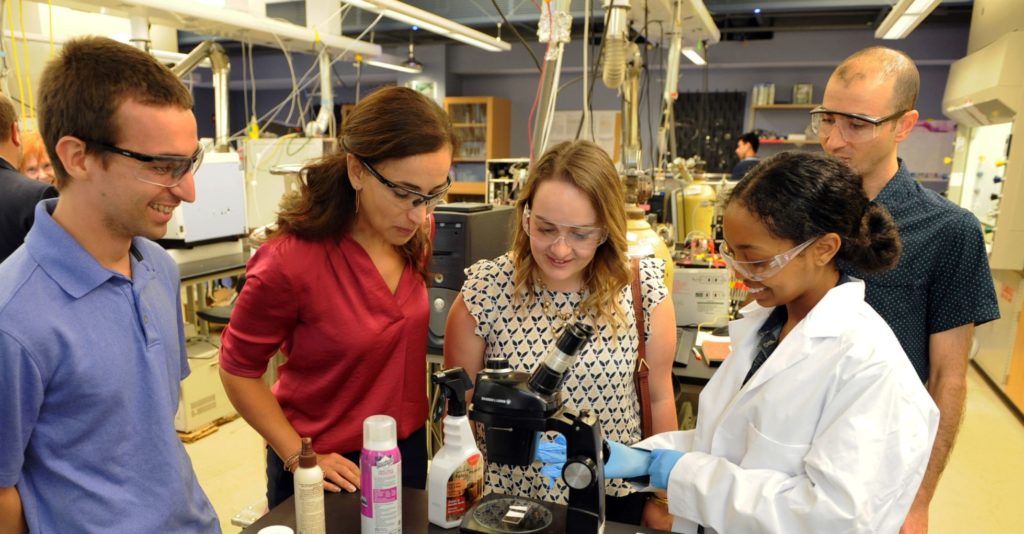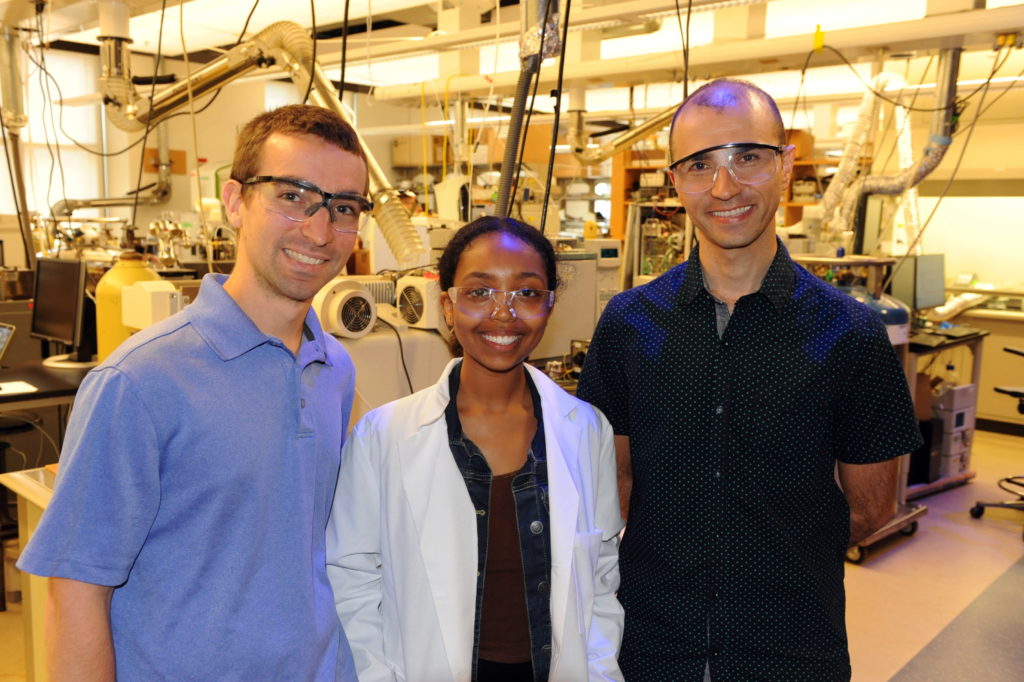Safety Goggles, Not Sunglasses: Project SEED Summer Internships

An ACS Project SEED student explains her summer research project during a site visit at Georgetown University in August 2018. (ACS Project SEED/Peter Cutts Photography)
According to a recent report from The Georgetown University Center on Education and the Workforce, low-income students are more likely to work in food service, sales, and administrative supports fields than their higher-income peers. These higher-income students are more than twice as likely to work in a lucrative career field such as science, technology, engineering, mathematics, business, or healthcare.
Thanks to the American Chemical Society (ACS), some students do not have to choose between bringing home summer wages and gaining valuable internship experience.
With roots in the 1960’s, ACS’s Project SEED was created to provide economically-disadvantaged students with the unique opportunity to explore the chemical sciences through an intensive summer fellowship. Depending on interests and future career goals, students were placed in academic, industrial, or governmental research settings such as Johns Hopkins University, the Library of Congress, and Thermodynamic Metrology Group /NIST.
As a recipient of the Cooke Foundation’s 2018 Good Neighbor Grant program, Project SEED provides high school students a stipend of between $2,500 and $3,000 as they work alongside the nation’s most prominent chemists for eight to ten weeks during the summer.
“With our $30,000 Good Neighbor Grant, we’ve been able to support paid fellowships for ten exceptional high school students to conduct intensive, real-life laboratory research under the guidance of a scientist mentor,” said Robert Moss, manager of corporate and foundation relations at the American Chemical Society.
In August, our grants team visited Project SEED fellow, Eldana Tadesse, at the Georgetown University Chemistry Lab. Eldana, a rising high school senior, spent her summer under the guidance of Dr. Kaveh Jorabchi, Assistant Professor in the Department of Chemistry. Eldana’s research focused on finding “distinct differences between fiber coatings for forensic analysis of single fibers”.1

Eldana and her mentors, Georgetown University PhD student, Michael Dolan (left) and Dr. Kaveh Jorabchi (right). (ACS Project SEED/Peter Cutts Photography)
Forensic scientists are often tasked with identifying clothing fibers left at crime scenes. Through further analysis, scientists are able to gather information about the original garment such as age and origin. Eldana’s experiments focused on fibers treated with stain and water protectants, such as Scotch Guard and UGG suede protectant, and how to identify products by their chemical breakdown.
American Chemical Society (ACS) is the world’s largest scientific society, operating many programs committed to fostering the scientific literacy of youth and developing the next generation of scientific talent. Currently in its 50th year, Project SEED has served a total of 10,300 students nationwide.
American Chemical Society is one of twelve 2018 Good Neighbor Grant recipients. The grant program offers $10,000 – $35,000 to local non-profits working to advance opportunities for talented students who have financial need. Learn more about the Cooke Foundation’s grant programs.
1 Tadesse, Eldana. Analysis of Fiber Coatings with a New Ionization Source. 2018